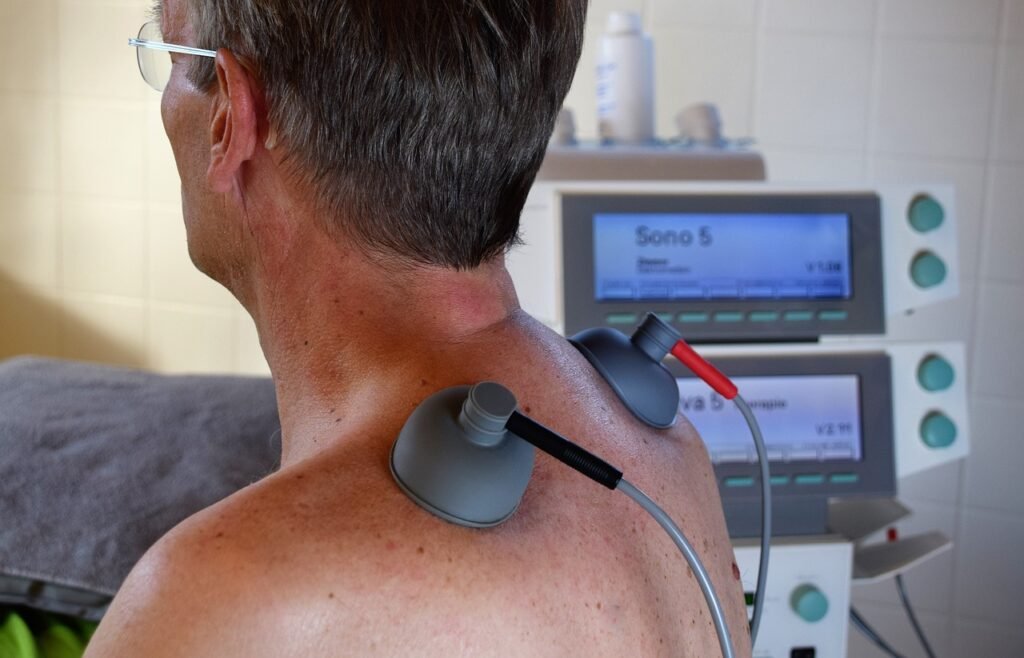
Introducing the Concept of Supreme Wellness
In the modern, fast-paced world, the pursuit of supreme wellness recovery demands more than just focusing on the physical body.
It requires a harmonious integration of physical, mental, and emotional health.
This multifaceted approach acknowledges that well-being is a complex interplay of various elements, each influencing the other.
Physical health serves as the cornerstone of this triad, providing the necessary foundation for overall well-being.
However, maintaining physical health alone is not sufficient for complete wellness.
Mental health, which encompasses mental clarity, stress management, and a positive mindset, is equally crucial.
Techniques such as mindfulness, meditation, and cognitive behavioral practices can aid in achieving mental balance and clarity, thereby supporting both physical and emotional well-being.
Emotional health, the third pillar, involves the understanding and management of one’s emotions, developing emotional intelligence, and nurturing positive relationships.
Practices like journaling, engaging in creative activities, and seeking social support can significantly enhance emotional well-being.
Positive emotional states are linked with better recovery outcomes and overall long-term health, underscoring their importance in the pursuit of supreme wellness.
The interconnected nature of these domains means that improving one aspect can positively influence the others.
For instance, regular physical activity not only boosts physical health but also improves mental clarity and emotional stability.
Similarly, effective stress management techniques can lead to better physical health and enhanced emotional resilience.
This holistic approach ensures that all areas of health are addressed, leading to a more comprehensive and sustainable form of wellness.
By embracing this integrated approach, individuals can better navigate the challenges of life with increased resilience and adaptability.
Recognizing the importance of each aspect and their interconnections is key to achieving supreme wellness.
This balanced perspective allows for a more thorough understanding of health, promoting a lifestyle that supports long-term well-being and recovery.
Physical Well-being and Healing

Maintaining physical health is essential for overall wellness, encompassing balanced nutrition, regular exercise, and sufficient rest.
These practices are crucial not only for prevention but also for the healing process.
Regular physical activities can improve bodily functions and reinforce the mind-body connection, which is vital for holistic health.
Engaging in exercise boosts cardiovascular health, enhances muscle strength, and promotes flexibility, all of which are necessary for maintaining physical vitality.
Proper nutrition plays a key role in supporting physical well-being.
Consuming a variety of nutrient-rich foods provides the body with the essential vitamins and minerals needed for optimal functioning.
A balanced diet should include a mix of fruits, vegetables, lean proteins, whole grains, and healthy fats to ensure the body receives a wide range of nutrients.
Hydration is also a critical aspect of physical health; drinking adequate amounts of water helps maintain bodily functions and energy levels.
Rest and sleep are fundamental for physical recovery and daily functioning.
Adequate sleep allows the body to repair and regenerate, which is crucial for maintaining energy, concentration, and overall health.
Creating a consistent sleep schedule and a calming bedtime routine can enhance the quality of sleep, contributing to better physical health outcomes.
Preventative measures, such as regular medical check-ups and screenings, are also vital components of physical well-being.
These practices help identify potential health issues early, allowing for timely intervention and management.
Preventative care includes routine vaccinations, dental care, and screenings for conditions such as hypertension, diabetes, and cancer.
Incorporating stress management techniques can further bolster physical health.
Activities such as yoga, deep breathing exercises, and spending time in nature can help reduce stress levels, which positively impacts overall physical well-being.
Maintaining a balanced lifestyle that integrates physical activity, nutrition, rest, and stress management is essential for sustaining physical health and supporting the other domains of wellness.
Mental Health in the Context of Wellness

Mental health plays a pivotal role in achieving supreme wellness.
It encompasses maintaining mental clarity, effectively managing stress, and cultivating a positive mindset.
One effective strategy for supporting mental health is mindfulness, which encourages individuals to stay present and fully engage with their current experiences.
This practice can reduce stress and enhance emotional regulation, contributing to overall mental balance.
Meditation is another valuable tool.
By dedicating a few minutes each day to meditation, individuals can improve their focus and reduce anxiety.
Various meditation techniques, such as guided imagery or progressive muscle relaxation, can cater to different needs and preferences, making it accessible to everyone.
Cognitive behavioral techniques can also be instrumental.
These methods help individuals reframe negative thoughts and develop healthier thinking patterns.
By challenging and changing detrimental beliefs, people can better manage stress and maintain mental clarity.
Mental health also benefits from social connections.
Building a strong support network of friends, family, and mental health professionals provides a safety net during challenging times.
Interacting with others can offer new perspectives, emotional support, and a sense of belonging, all of which are crucial for maintaining mental well-being.
Physical activity is not just beneficial for the body; it also supports mental health.
Exercise releases endorphins, which are natural mood lifters, and can reduce symptoms of depression and anxiety.
Activities such as walking, swimming, or yoga can be particularly effective in promoting mental clarity and reducing stress levels.
Adequate rest is essential for mental health. Sleep deprivation can exacerbate stress and negatively impact cognitive function.
Establishing a consistent sleep schedule and creating a calming bedtime routine can improve sleep quality, aiding mental recovery and performance.
Lastly, engaging in hobbies and leisure activities can offer a mental reprieve from daily stresses.
Creative pursuits like painting, writing, or playing a musical instrument provide an outlet for self-expression and relaxation.
Balancing work and leisure helps prevent burnout and maintains a healthy mind.
By incorporating these strategies into daily life, individuals can enhance their mental health and contribute to their overall pursuit of supreme wellness.
The Impact of Emotional Health

Emotional health is another vital component of supreme wellness.
It involves understanding and managing one’s emotions, developing emotional intelligence, and fostering positive relationships.
Practices such as journaling, engaging in creative activities, and seeking social support can significantly boost emotional well-being.
Emotional intelligence is key to managing emotional health.
It involves recognizing and understanding one’s own emotions and those of others.
This skill helps individuals navigate social complexities and build healthier relationships, which in turn provides emotional support and fosters resilience.
For example, empathy and active listening can improve interpersonal connections, reducing feelings of isolation and stress.
Creative activities such as painting, writing, or playing music offer an outlet for emotional expression and can be therapeutic.
These activities allow individuals to process their feelings constructively, providing a sense of accomplishment and relaxation.
Engaging in such activities regularly can lead to increased emotional resilience and stability.
Social support is another crucial element in emotional health.
Building a network of friends, family, and support groups can offer emotional comfort during challenging times.
Having someone to talk to can provide new perspectives and alleviate emotional burdens, contributing to a stronger emotional foundation.
Additionally, self-reflection through journaling can help individuals track their emotional experiences and identify patterns or triggers.
This practice can lead to better emotional regulation and self-awareness, essential components of emotional health.
Reflecting on positive experiences and expressing gratitude can also uplift mood and foster a positive emotional state.
Emotional health is not static; it requires continuous effort and adjustment.
Regularly engaging in activities that promote emotional well-being can lead to sustained improvements in overall health.
Positive emotional states are linked to better health outcomes, emphasizing the importance of maintaining emotional balance.
The Interrelation of the Three Aspects

The interconnected nature of physical, mental, and emotional health creates a dynamic and holistic framework for achieving supreme wellness.
Each aspect profoundly influences the others, highlighting the necessity of addressing all three to foster overall well-being.
For example, engaging in regular physical activity not only enhances physical health by improving cardiovascular function and muscle strength but also significantly benefits mental health.
Physical exercise is known to release endorphins, which elevate mood and reduce symptoms of anxiety and depression.
This interplay shows how focusing on one domain can yield positive outcomes across multiple areas.
Emotional health also plays a crucial role in this interconnected system.
Emotional stability and intelligence help individuals navigate social complexities and build stronger relationships, which in turn offer essential support for both mental and physical health.
For instance, maintaining strong social connections can provide the emotional support needed during stressful times, thereby reducing mental strain and promoting better physical recovery.
Mental health practices, such as mindfulness and cognitive behavioral techniques, can further enhance this interrelation.
By fostering mental clarity and reducing stress, these practices help individuals maintain a balanced state of mind, which positively impacts physical health.
Reduced stress levels can lower the risk of chronic conditions like hypertension and improve immune function, showcasing the significant health benefits of mental well-being.
The reciprocal relationship between these aspects underscores the importance of an integrated approach to health.
When emotional and mental health are prioritized, physical health often follows suit, creating a positive feedback loop that enhances overall wellness.
Conversely, neglecting any one aspect can lead to imbalances that affect the entire system.
For instance, chronic stress without proper emotional and mental management can lead to physical ailments such as fatigue or weakened immunity.
By recognizing and nurturing the interconnections among physical, mental, and emotional health, individuals can create a more effective and comprehensive strategy for supreme wellness.
This integrated approach ensures that all dimensions of health are addressed, leading to a more resilient and adaptable lifestyle that can better handle the complexities of modern life.
The Role of Wellness Professionals

Wellness professionals are pivotal in helping individuals navigate the complex landscape of supreme wellness.
These experts come from various fields, each offering specialized knowledge and support to address different facets of health.
From therapists and nutritionists to fitness coaches and mental health counselors, they provide tailored guidance to foster holistic well-being.
Therapists can assist with emotional and mental health issues, offering strategies to manage stress, improve emotional intelligence, and cultivate a positive mindset.
Nutritionists help individuals create balanced diets that support physical health, focusing on nutrient-rich foods that enhance bodily functions and energy levels.
Fitness coaches develop exercise routines tailored to individual needs, ensuring that physical activity supports both physical and mental health.
Mental health counselors play a crucial role in promoting mental clarity and emotional stability.
They offer techniques such as cognitive behavioral strategies and mindfulness practices to help individuals manage stress and maintain mental balance.
These professionals often collaborate with other wellness experts to create a comprehensive approach to health.
Group workshops and community programs led by wellness professionals can also be beneficial.
These settings provide a supportive environment where individuals can learn and practice new wellness strategies.
The shared experiences and collective knowledge of the group can offer additional motivation and support.
Wellness professionals also emphasize the importance of preventative care.
Regular medical check-ups, screenings, and vaccinations are vital for early detection and management of potential health issues.
They can provide personalized recommendations for maintaining a healthy lifestyle and preventing chronic conditions.
Incorporating the expertise of wellness professionals into a personalized wellness plan can significantly enhance an individual’s ability to achieve and maintain supreme wellness.
Their guidance helps individuals set realistic goals, track progress, and make necessary adjustments to their wellness strategies.
By offering a range of services and support, wellness professionals play an integral role in helping individuals achieve a balanced and holistic approach to health.
Their expertise ensures that all dimensions of wellness are addressed, paving the way for long-term well-being and recovery.
Developing a Personalized Wellness Plan

Developing a personalized wellness plan requires a thoughtful approach to addressing physical, mental, and emotional health needs.
Begin by evaluating your current lifestyle habits and identifying areas where improvements can be made.
Set achievable goals that encompass a balance of nutrition, physical activity, mental exercises, and emotional care.
Incorporate a mix of nutrient-dense foods to ensure your body receives essential vitamins and minerals.
Focus on a balanced diet that includes a variety of fruits, vegetables, lean proteins, whole grains, and healthy fats.
Staying hydrated is also crucial for maintaining energy levels and overall health.
Regular physical activity is essential for both physical and mental well-being. Choose exercises that you enjoy and can commit to, whether it’s walking, swimming, yoga, or weight training.
Aim for at least 150 minutes of moderate aerobic activity or 75 minutes of vigorous activity each week, along with muscle-strengthening exercises on two or more days a week.
To support mental health, integrate mindfulness practices and cognitive behavioral strategies into your daily routine.
Techniques such as meditation, deep breathing exercises, and progressive muscle relaxation can help reduce stress and improve mental clarity.
Engaging in activities that stimulate the mind, such as reading, puzzles, or learning new skills, can also be beneficial.
Emotional health is equally important and can be nurtured through practices like journaling, creative activities, and building strong social connections.
Developing emotional intelligence by recognizing and understanding your emotions, as well as those of others, can improve your ability to manage stress and foster positive relationships.
Regularly assess your progress and make adjustments to your wellness plan as needed.
Track your achievements and celebrate milestones to stay motivated.
By considering all three aspects, individuals can create a comprehensive wellness strategy that supports long-term health.
Remember, the journey to supreme wellness is unique for everyone, and finding the right balance is key to maintaining a sustainable and fulfilling lifestyle.
Final Thoughts: Reaching Supreme Wellness

Achieving supreme wellness is an ongoing journey that requires dedication and a holistic approach.
By prioritizing the interconnected aspects of physical, mental, and emotional health, individuals can create a balanced lifestyle that supports recovery and enhances overall well-being.
Integrating the guidance of wellness professionals and adopting a personalized wellness plan are crucial steps in this process.
These plans should be dynamic, evolving as your needs and circumstances change.
Setting realistic goals and celebrating milestones along the way can help maintain motivation and ensure sustainable progress.
It is important to recognize that wellness is not a one-size-fits-all concept.
Each person’s journey is unique, requiring customized strategies that align with individual needs and preferences.
Embrace the process with patience and flexibility, making adjustments as needed to stay on track.
Regular self-assessment can provide valuable insights into what works best for you, allowing for continuous improvement and adaptation.
Support from wellness professionals can offer valuable expertise and encouragement.
Engaging with therapists, nutritionists, fitness coaches, and mental health counselors provides a well-rounded approach to health, addressing all facets of wellness.
Group workshops and community programs can also be beneficial, offering shared experiences and additional support.
Remember, achieving supreme wellness is not just about reaching a destination but about enjoying and learning from the journey.
The commitment to holistic health fosters resilience, adaptability, and a higher quality of life.
Embrace each step with mindfulness and intention, knowing that the pursuit of supreme wellness is a lifelong endeavor that brings continuous rewards.
